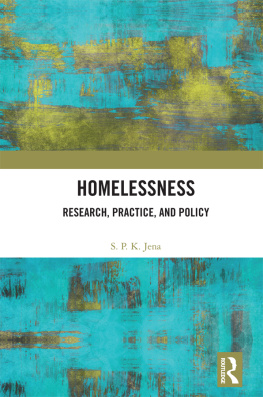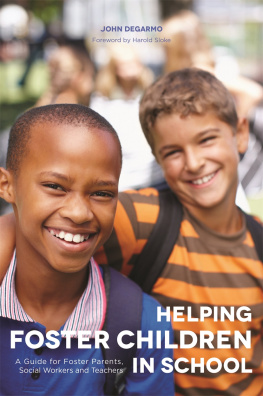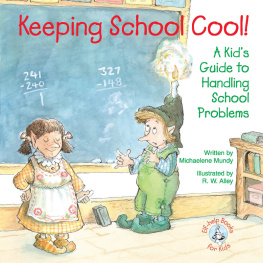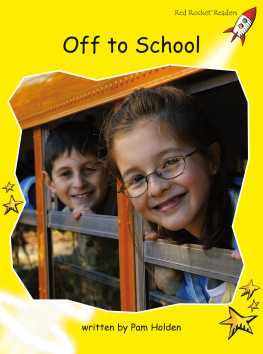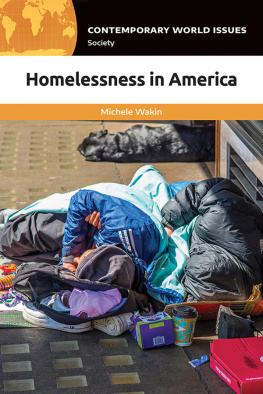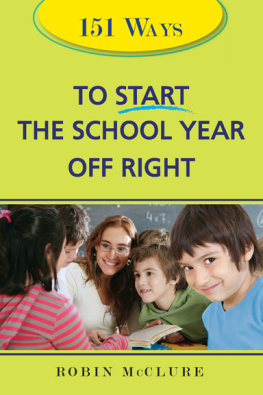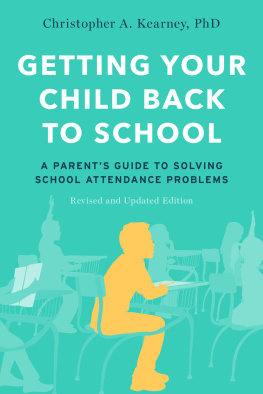CHILDREN OF
POVERTY
STUDIES ON THE EFFECTS
OF SINGLE PARENTHOOD,
THE FEMINIZATION OF POVERTY,
AND HOMELESSNESS
edited by
STUART BRUCHEY
ALLAN NEVINS PROFESSOR EMERITUS
COLUMBIA UNIVERSITY
First published 1999 by Garland Publishing Inc.
Published 2018 by Routledge
2 Park Square, Milton Park, Abingdon, Oxon, OX14 4RN
52 Vanderbilt Avenue, New York, NY 10017
First issued in paperback 2018
Routledge is an imprint of the Taylor & Francis Group, an informa business
Copyright 1999 by Rebecca Newman
All rights reserved. No part of this book may be reprinted or reproduced or utilised in any form or by any electronic, mechanical, or other means, now known or hereafter invented, including photocopying and recording, or in any information storage or retrieval system, without permission in writing from the publishers.
Notice:
Product or corporate names may be trademarks or registered trademarks, and are used only for identification and explanation without intent to infringe.
Library of Congress Cataloging-in-Publication Data
Newman, Rebecca.
Educating homeless children : witness to a cataclysm / Rebecca Newman. p. cm. (Children of poverty)
Includes bibliographial references and index.
ISBN 0-8153-3475-3
1. Homeless childrenEducationCalifornia Case studies. I. Title. II. Series.
LC5144.22.C2N49 1999
371.826942dc21 99-33822
ISBN 13: 978-1-138-96836-3 (pbk)
ISBN 13: 978-0-8153-3475-0 (hbk)
To Riley, whose love, belief in me, and unfailing support has made this work possible; and to Tom, who always said I should be an anthropologist and whose love supported me even after his death.
My deepest thanks to the following:
The families and children of The Chalet, for sharing their time and their stories with me;
The staffs of Jefferson School and The Chalet for the inspiration provided by their approach to their work, and for welcoming an outsider into their worlds, and for their many personal courtesies to me;
The members of my committeeHoward Adelman, Lynn Beck, Patricia McDonough, and Don Nakanishifor their willingness to serve on it and for the inspiration of their examples as teachers, researchers, and human beings;
My chair, Lynn Beck, for believing in my work, for many thoughtful discussions, and for her great generosity in opening the doors to professional life by making it possible for me to present and publish some of my work;
The many professors and colleagues who have contributed to my professional and personal development over the years;
The students and families with whom I have worked throughout my career;
My husband Riley Newman, our children and their spousesHenry Layfield and Heather Cochran, Mary and Jack Thorndike, Brett Newman and Marta Silva, and Sven Newmanand my extended family and friends for their support, for their enthusiasm for my work, and for their willingness to hear about it and discuss it as I struggled to come to terms with this material.
I hope to do work which will be worthy of the support I have had in such abundance.
Educating Homeless Children
Home is the place where, when you have to go there, they have to take you in. This line from Robert Frosts The Death of the Hired Man (Lathem, 1969) expresses a poignant truth about what we mean by home. Add Plinys Home is where the heart is and you will have compassed the essence of our deepest understanding of the word. Thousandsperhaps hundreds of thousandsof American schoolchildren and their families, however, have no homes where, when you have to go there, they have to take you in. For them we must add Frosts subsequent line, I should have called it something you somehow havent to deserve. Frosts speaker is more generous than our society in thinking that a home is something one is somehow entitled to and need not deserve. One may argue about whether homeless adults must deserve their homes, and about who is to blame for their homelessness; Americas homeless children, however, surely do deserve homes, but lack them nonetheless.
The research reported here was founded in anger that there should be homeless schoolchildren in this wealthiest of countries; belief that it is within the power of schools to meaningfully ameliorate (although not correct) their situation; and a desire to give voice to the hopes, fears, struggles and aspirations of homeless students and their families. They deserve this effort and much more.
Curricular theorist William Pinar believes that researchers need to provide the reader with sufficient autobiographical data to set the time, place, and voice of the exploration, in order to give it a context and meaning (1988, p. 264). Henry Giroux writes that we should be the bearers of dangerous memory who keep alive the memory of human suffering in order to work for its elimination (1988, p. 248). Giroux articulates a belief which has informed my life as teacher and student; like Pinar, I believe that the experiences, values, and beliefs of the researcher are bound to influence both the choice of a research topic and how it is approached. Science and truth are best served if the reader knows how the researcher came to the subject.
In the spirit, then, of Giroux and Pinar, let me say that I come to this project having spent much of my adult life in schools, teaching the children of poverty. As a graduate student in 1993, I did some field research in a school for homeless children as my project for a course in qualitative methodology. I realized then that I had taught students who were essentially homeless as long ago as 1977: Puerto Rican children living in unheated, vermin-infested apartments in Philadelphias slums. In 1982 there was a kindergartner in my class whose family of seven recent immigrants from Mexico lived in a garage, and off and on there have been the serially homeless: families migrating ceaselessly through the homes of friends and relatives and a series of welfare motels. They were not always labeled homeless students, but they were there: the poorest of the poor, ultimate exemplars of the dispossessed. It was in search of answers to the problems of such children that I returned to the university after seventeen years in the classroom.
In the course of my fieldwork at the school for homeless students, I did a very limited review of relevant literature. My reading and my experience suggested to me that we knew very little about the problems of homeless students and that programs to assist them would be better-designed and more likely to be helpful if we had more information about the actual experiences which these children and their families have with schools and schooling. Doing well in school involves a variety of complex behaviors and multiple environmental factors. It is extremely difficult to establish causal connections between specific attributes of individuals (or attributes of their home and school environments) and student performance,
Stanford Universitys Michael Kirst and Milbrey McLaughlin (1990) write that educators need a better grasp of the educational implications of the everyday lives of children, while James Comer speaks of the need to understand what aspects of schooling may not be child-friendly or provide adequate support for childrens learning (ONeil, 1997). In keeping with these two admonitions, this book addresses the ways in which both home and school contexts may constrain school outcomes for homeless children. The research was done for my doctoral dissertation. I hope to inform both educators and others about the plight of children like those in my study and to offer suggestions for changes in research, policy, and school practice which might benefit such children.


